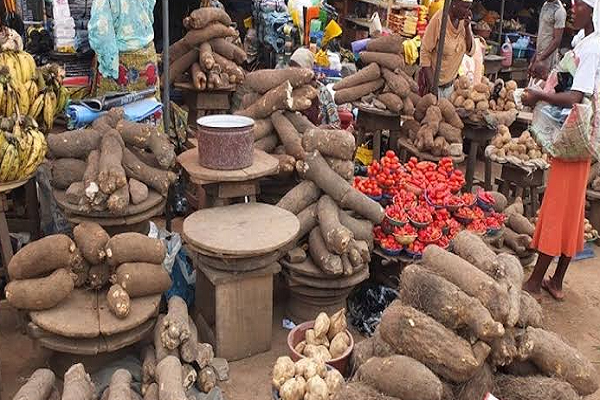By Milcah Tanimu
As Nigeria experiences a bumper harvest, the impact on food prices has been varied across Kano, Kaduna, and Katsina States. While some areas are seeing reductions in food costs, others continue to face high prices.
Kano State:
In Kano, food prices have dropped due to the influx of new harvests. A survey showed a decrease in the prices of grains like maize and millet. For example, the price of a bag of maize fell from N105,000 to N95,000, and millet from N90,000 to N80,000. Local rice remains expensive, ranging from N150,000 to N170,000 per bag, due to high demand. Prices for tomatoes have also decreased, with a bowl now costing N2,400 compared to N3,200 previously. However, the price of onions has risen due to damage from recent rains, leading to a price of N70,000 per bag.
Kaduna State:
In Kaduna, food prices have shown a mixed trend. In rural areas like Kafanchan, food prices have decreased significantly, with tomatoes dropping from N35,000 to N22,000 per basket. However, prices in Kaduna city have remained relatively high. For example, rice and beans prices have not seen significant changes, with a measure of rice selling for N2,400 and beans at N2,700.
In Zaria, agricultural commodity prices have stabilized, with hybrid maize at N85,000 for a 100kg bag and local maize at N75,000. Other commodities, like soybean and sorghum, also showed stable prices. In Saminaka, maize prices fell to N73,000 for a hybrid variety, and local rice to N70,000 per 100kg bag.
Katsina State:
In Katsina, food prices have not decreased as expected despite the harvest. Prices for staples like local rice have dropped from N83,300 to N75,600 per 50kg bag, and beans from N200,000 to N168,000 per 100kg bag. However, prices for millet and maize remain high, with a 100kg bag of millet selling for between N85,000 and N100,000. The price of tomatoes has reduced significantly, with a large basket now costing between N20,000 and N25,000, down from N120,000 to N150,000.
Consumer and Farmer Perspectives:
Consumers in these states have expressed mixed feelings about the changes. Some, like Musa Shanono in Kano, are hopeful for further price drops before November. Others, such as Amina Mohammed, call for measures to prevent food hoarding and ensure fair prices. In Katsina, residents and traders alike are concerned about the persistent high prices, particularly for items like yam, which has led some to stop selling certain dishes.
Government Actions:
In response to the agricultural boom, the Katsina State government has sold 20,000 metric tons of fertilizer at subsidized prices and recruited over 772 extension workers to support farmers. Governor Dikko Radda emphasized the importance of improving agricultural productivity to reduce poverty and enhance food security.
Overall, while the bumper harvest has led to lower prices in some areas, the impact has been uneven, with significant variations in different parts of the three states.





